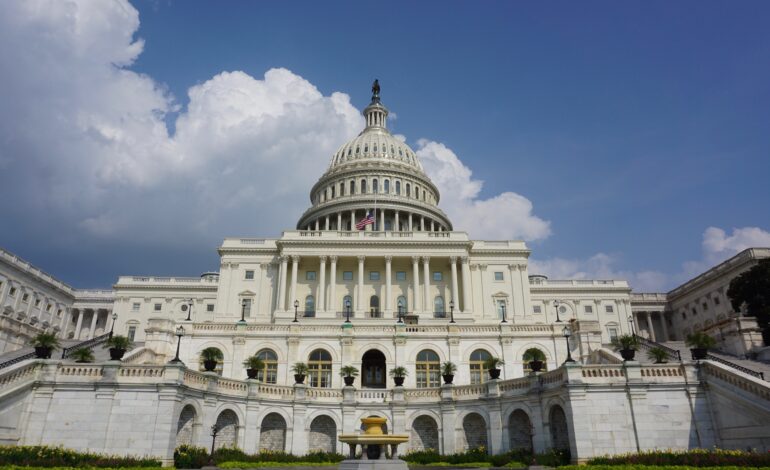WASHINGTON D.C. — At a U.S. House subcommittee hearing on Tuesday, Michigan Governor Whitmer joined Colorado Governor Jared Polis and Arkansas Governor Asa Hutchinson to discuss their states’ responses to the COVID-19 pandemic.
Entitled, On the Front Lines: How Governors are Battling the COVID-19 Pandemic, the hearing was conducted remotely by the the Subcommittee on Oversight and Investigations, under the House Committee on Energy and Commerce. U.S. Reps. Debbie Dingell (D-Dearborn), Fred Upton (R-St. Joseph) and Tim Walberg (R-Tipton) are members of the broader committee.
Whitmer addressed the state of Michigan’s budget vows last week during one of her COVID-19 press briefings. Officials in Lansing have grown increasingly concerned over the state’s budget shortfalls and historically high unemployment rates and, like other states, are turning to the federal government for relief.
Michigan is facing serious financial turmoil this fiscal year, Whitmer highlighted in her testimony today. Close to 1.8 million Michiganders filed initial unemployment claims between March 15 and May 13, the fifth highest nationally, amounting to nearly 36 percent of the state’s workforce.
The state is now looking at a $6.2 billion loss in revenue over the remainder of the fiscal year and next.
“Right now, the language in the CARES act does not allow states the flexibility we need to address our revenue shortfalls,” Whitmer said in her written testimony. “In Michigan, our rainy-day fund has a balance of more than $1.2 billion, but even if we were to draw every cent from that fund, we still would not come close to solving a $6.2 billion budget problem.”
Whitmer said she is looking for Congress to come up with “broader solution” to the crisis, which includes more funding and more flexibility in existing and future federal funding programs. Michigan has received around $3.2 billion in congressional relief funds overall. Much of this funding is allocated toward healthcare response and small business loan funding.
Whitmer touched on other topics as part of her COVID-19 response. Her latest executive orders have partially reopened much of the economy in recent weeks, though no real plans have surfaced for the reopening of schools. Whitmer said she has created a group to look into plans for reopening in the fall, which may include dropped class sizes.
Another topic in the testimony: The state’s resources to effectively combat COVID-19’s spread through testing and adequate protective equipment have depleted over time.
“My administration has taken aggressive measures to fight the spread of COVID-19, prevent the rapid depletion of the state’s critical health care resources and lower the chance of a devastating second wave,” Whitmer said. “We need the White House to create a specific, long-term plan outlining how the federal government will ensure we have adequate testing supplies so we can gather the data we need to make informed decisions about re-engaging our economies.
“And we would all benefit from a guarantee of free testing nationwide coupled with a robust federal messaging campaign to encourage Americans to get tested.”






Leave a Reply